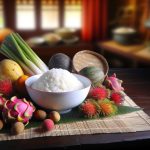Fatigue is a state of extreme tiredness or exhaustion, often characterized by a lack of energy and motivation. It can be physical, mental, or a combination of both. Unlike regular tiredness, which can be alleviated by rest, fatigue is more persistent and may not go away with sleep alone.
Types of Fatigue:
- Physical Fatigue:
- This occurs when your muscles or body feel tired and weak after physical activity. It may result from intense exercise, physical labor, or simply prolonged physical exertion. Over time, physical fatigue can impact your ability to perform tasks, even those that are not physically demanding.
- Mental Fatigue:
- Mental fatigue is a state of cognitive exhaustion that occurs after long periods of intense mental activity or stress. It can lead to difficulties with concentration, memory, and decision-making, and may also manifest as irritability or mood changes.
Causes of Fatigue:
- Lifestyle Factors: Poor sleep, lack of physical activity, an unhealthy diet, and excessive caffeine or alcohol consumption can contribute to fatigue.
- Medical Conditions: Chronic fatigue can be a symptom of various medical conditions such as anemia, hypothyroidism, diabetes, sleep disorders, and chronic fatigue syndrome.
- Psychological Factors: Stress, anxiety, depression, and other mental health issues can lead to persistent fatigue.
- Medications: Certain medications, including those for allergies, blood pressure, and depression, can cause fatigue as a side effect.
Symptoms of Fatigue:
- Persistent tiredness or sleepiness
- Lack of motivation
- Difficulty concentrating or focusing
- Muscle weakness or soreness
- Irritability or moodiness
- Headaches
- Slow reflexes or responses
Managing Fatigue:
- Rest and Sleep: Ensuring you get enough high-quality sleep is crucial for combating fatigue.
- Healthy Diet: Eating a balanced diet rich in nutrients can provide your body with the energy it needs.
- Regular Exercise: Physical activity can boost your energy levels and improve your overall stamina.
- Stress Management: Techniques such as mindfulness, meditation, or counseling can help reduce stress-related fatigue.
- Medical Consultation: If fatigue is persistent and unexplained, it’s important to consult a healthcare provider to rule out any underlying medical conditions.
Fatigue is a common but complex issue that can affect many aspects of daily life. Addressing its causes through lifestyle changes, proper rest, and medical attention, when necessary, is key to managing and overcoming fatigue.
Certain foods and herbs are known for their ability to naturally combat fatigue by boosting energy levels, improving mental clarity, and supporting overall health. Here are some of the most effective options:
Foods That Help Fight Fatigue:
- Oats
- Benefits: Oats are a whole grain that provides slow-releasing carbohydrates, keeping your energy levels stable throughout the day. They are also rich in fiber, which helps sustain energy and prevent blood sugar spikes.
- Bananas
- Benefits: Bananas are high in potassium, which helps maintain muscle function and prevent fatigue. They also contain natural sugars and fiber, providing a quick but sustained energy boost.
- Almonds
- Benefits: Almonds are rich in magnesium, which is essential for energy production. They also provide protein and healthy fats, which can help maintain energy levels and keep you feeling full.
- Spinach
- Benefits: Spinach is high in iron, a key nutrient that helps transport oxygen in the blood. Iron deficiency can lead to fatigue, so incorporating iron-rich foods like spinach can help combat tiredness.
- Sweet Potatoes
- Benefits: Sweet potatoes are a good source of complex carbohydrates and fiber, which provide steady energy. They also contain vitamin A and potassium, which support overall health and energy levels.
- Greek Yogurt
- Benefits: Greek yogurt is high in protein, which helps sustain energy throughout the day. It also contains probiotics, which support gut health and may help improve overall well-being and energy levels.
- Eggs
- Benefits: Eggs are a great source of high-quality protein and B vitamins, which are important for energy production. They also contain essential amino acids that help repair and build muscle tissue, contributing to overall vitality.
- Quinoa
- Benefits: Quinoa is a complete protein, meaning it contains all nine essential amino acids. It is also high in iron, magnesium, and fiber, making it an excellent food for sustained energy.
- Berries
- Benefits: Berries like blueberries, strawberries, and raspberries are rich in antioxidants and vitamins that help reduce inflammation and fight fatigue. Their natural sugars provide a quick energy boost without causing a crash.
- Dark Chocolate
- Benefits: Dark chocolate contains small amounts of caffeine and theobromine, which can enhance energy and alertness. It’s also rich in antioxidants, which can help reduce fatigue caused by oxidative stress.
Herbs That Help Fight Fatigue:
- Ginseng
- Benefits: Ginseng, particularly Panax ginseng, is an adaptogenic herb known for its ability to boost energy, reduce fatigue, and improve mental clarity. It helps the body adapt to stress and supports overall vitality.
- Ashwagandha
- Benefits: Ashwagandha is another adaptogen that helps combat fatigue by reducing stress and anxiety. It supports the adrenal glands, which play a crucial role in managing energy levels and overall stamina.
- Rhodiola Rosea
- Benefits: Rhodiola Rosea is an adaptogen that enhances physical and mental performance, reduces fatigue, and helps the body cope with stress. It is particularly useful for combating burnout and fatigue related to stress.
- Maca Root
- Benefits: Maca root is known for its energy-boosting properties and its ability to improve endurance and stamina. It also supports hormonal balance, which can help alleviate fatigue.
- Peppermint
- Benefits: Peppermint has a refreshing and stimulating effect that can help reduce mental fatigue and improve concentration. Peppermint tea or inhaling peppermint essential oil can help increase alertness.
- Ginger
- Benefits: Ginger is known for its ability to improve circulation and digestion, which can help fight fatigue. It also has anti-inflammatory properties that may help reduce physical and mental tiredness.
- Licorice Root
- Benefits: Licorice root can help combat adrenal fatigue by supporting adrenal gland function. It helps regulate cortisol levels, which play a key role in managing energy and stress.
- Holy Basil (Tulsi)
- Benefits: Holy basil is an adaptogen that helps reduce stress, enhance mental clarity, and improve overall energy levels. It is also known for its ability to balance the body and support immune function.
- Cordyceps
- Benefits: Cordyceps is a type of medicinal mushroom known for its ability to increase energy, improve stamina, and enhance athletic performance. It supports oxygen utilization in the body, which can help reduce fatigue.
- Green Tea
- Benefits: Green tea contains caffeine and L-theanine, which together help improve focus and alertness without causing the jittery effects of coffee. It also contains antioxidants that support overall health and fight fatigue.
Conclusion:
Incorporating these foods and herbs into your diet can help naturally combat fatigue, boost energy levels, and improve overall well-being. By focusing on nutrient-dense options that provide sustained energy and support the body’s stress response, you can enhance your vitality and reduce feelings of tiredness throughout the day.
Sources:
https://my.clevelandclinic.org/health/symptoms/21206-fatigue
https://www.health.harvard.edu/topics/energy-and-fatigue
https://www.uclahealth.org/news/article/what-are-adaptogens-and-should-you-be-taking-them









